Early Modern Letters Online – or EMLO for short – is our growing union catalogue of sixteenth-, seventeenth-, and eighteenth-century correspondence. It is at the heart of what we do. We work to continually add and enhance New Metadata, New Features, and New Collaborators. Find out more below, and Get Involved!
How Do You Solve A Problem Like Correspondence?
The transformation of communications in the early modern period allowed ordinary scholars to scatter their letters across and beyond whole continents. The resulting integration of widely dispersed communities was fundamental to the intellectual fertility of the period. However, the difficulty of reassembling from countless libraries, archives, and private collections the innumerable fragments of deliberately dispersed corpora of manuscript correspondence has posed an almost insuperable problem for lone academics ever since.
In order to surmount these difficulties, individual researchers spend lifetimes piecing together correspondences central to their research, thereby producing polished increments of little data of potentially enormous value to other scholars; but at present these lone practitioners have no definitive platforms for publishing, curating, visualizing, or analyzing their datasets, or for sharing them with people working on cognate topics. While recent years have witnessed an efflorescence of online catalogues and digital editions of letters, these have tended to exist in the form of discrete silos around carefully defined collections and correspondents, making the large-scale exploration and analysis so essential to a full appreciation of early modern epistolarity extremely difficult.
These problems are compounded by the equally daunting challenges confronted by repositories housing significant collections of correspondence. Virtually every sheet of paper in an epistolary archive is a discrete document which needs to be catalogued separately. These documents are written in a wide variety of hands and languages, refer obliquely to an almost infinite range of themes and events, and are authored by heterogeneous and widely scattered people whose origins and identities are often disguised through familiar or learned forms of address. Even when efforts are made to itemize these complex collections, this task is seldom performed at a level of precision or granularity necessary for easy retrieval; and the resulting catalogues are often available only on site in traditional, manual card indexes, or via idiosyncratic digital resources quickly rendered technologically obsolete. For this reason, archives of correspondence, even when assembled within publicly accessible repositories, typically constitute ‘hidden collections’ of the most elusive kind.
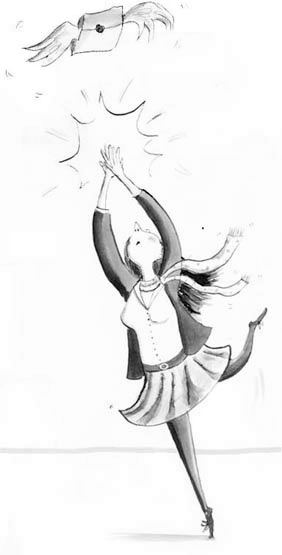
Where We Come In
Since 2009, we have been working on a solution to these problems: a collaborative, open source union catalogue and (where possible) archive of learned letters to which a dispersed international community of scholars, projects, and repositories can actively contribute material, energy, information, and expertise. We have called this resource Early Modern Letters Online, or EMLO for short. Scratch-baked during the first phase of the Project by colleagues in Bodleian Digital Library Systems and Services, and currently featuring data from eight pilot collections, EMLO is a proposition of three parts…
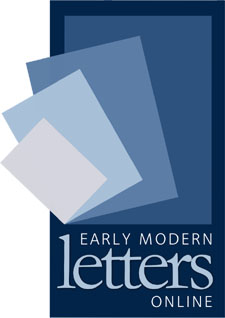
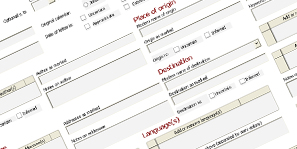
1. Collection
EMLO-Collect is our free-standing data collection application. Designed for use in libraries and archives, and implemented around Open Office, it combines the flexibility of a spreadsheet with the efficiency of drop-down menus, pre-validated forms, and other features of a web interface. Information collected can be uploaded to the catalogue via an online docking station.
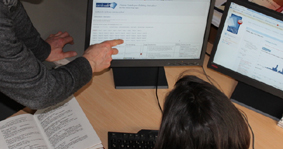
2. Curation
EMLO-Edit is our web-based editorial environment. Allowing for the manipulation, refinement, and de-duplication of metadata by a dispersed community of contributors, it is a powerful publishing and curatorial solution, hand-crafted for early modern letter records. The source code is now available on GitHub, too.
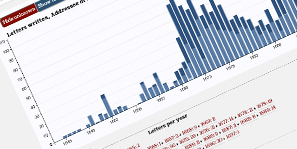
3. Discovery
A sophisticated yet lightweight suite of discovery services sits over the editorial interface, interrogating and rendering catalogue content for end users. Powerful search and facetting tools are blended with comprehensive category browsing and rapid record retrieval.
EMLO is a fledgling resource. The data we have assembled represents only a fraction of the epistolary information available in institutional catalogues, digital archives, and scholars’ databases around the world. Moreover, while it currently performs effectively as a basic finding aid, it has not yet realized its potential as a genuine tool of analysis and collaboration: prosopographical, geographical, and bibliographical object models are basic; there is no ready means of comparing data; and visualizations, so important for basic way-finding within as well as serious interpretative work on large datasets, are limited currently to simple bar charts on person profiles. Thus, over the next two years we will be adding:
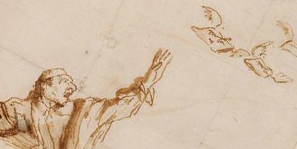
New Metadata
Establishing EMLO as the central meeting point for metadata on early modern letters by using a variety of methods to scale catalogue content rapidly and cost-effectively.
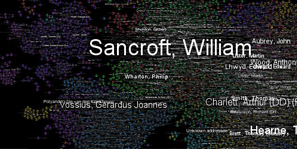
New Features
Integrating tools for interrogation, visualization, and comparison designed to transition EMLO from a catalogue and finding aid to a platform for scholarly research and analysis.
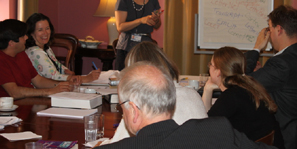
New Collaborators
Involving an ever-growing global community of epistolary enthusiasts – people, projects, and repositories – in the ongoing population and development of the catalogue.
These core priorities are supported by two Pilot Projects and some Events. Our ultimate aim is to assemble a resource so representative in its coverage, and tools so well-tailored to the needs of repositories, projects, and individual scholars, that EMLO will exercise a powerful gravitational force on epistolary data worldwide.
